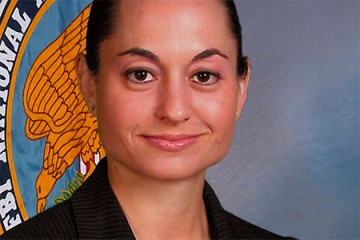Maryland lawmakers plan to introduce a bill in Annapolis today that would allow private colleges and universities in Baltimore to establish their own university police departments. This bill, which has the full backing of Baltimore Mayor Catherine Pugh and Police Commissioner Darryl De Sousa, would be the first step in a comprehensive process through which Johns Hopkins could enhance safety and security at university and medical campuses in the city.
The university has worked closely with city leaders over the past several months, in addition to visiting peer institutions, including those with academic medical centers, to explore the possibility of adding a university police department that would complement existing security efforts.
A next step, should the legislation pass Maryland's General Assembly and be signed into law, would be to negotiate an agreement with the Baltimore Police Department—with input from the JHU community and neighbors—on the size, scope, training, and capabilities of the university police department.
"The safety of our campus communities is a matter of utmost concern," Johns Hopkins University President Ronald J. Daniels and Johns Hopkins Medicine CEO Paul Rothman wrote in a joint message to faculty, staff, and students today, adding that they "fully support this legislative effort."
Public colleges in Baltimore—including the University of Maryland, Baltimore; the University of Baltimore; Morgan State University; and Coppin State University—already host university police departments, as do most public universities and private research universities located in urban settings. This past fall, representatives from Johns Hopkins visited peer institutions in Philadelphia, Chicago, and Los Angeles and sought advice from outside experts to study the experiences of university police departments, Daniels and Rothman said.
Johns Hopkins—which recently named Melissa Hyatt, colonel of homeland security and training for the Baltimore Police Department, its new vice president for security beginning in April—currently has a multi-layered security program that relies on campus and contract security officers, and off-duty Baltimore police officers. It also closely coordinates its efforts with the Baltimore Police Department, which patrols the neighborhoods around JHU's university and medical campuses.
JHU recently took other steps designed to enhance safety on and around those campuses, including investments in security cameras, street lighting, transportation, housing, and neighborhood development. A new JHU police department would supplement these ongoing activities.
"We see this as a critical opportunity not only to strengthen public safety in and around our campuses but also to build a model university police department that focuses specifically on the needs of our community and reflects contemporary best practices at universities with academic medical centers," Daniels and Rothman wrote. "We expect the department to uphold in every way the core values of our institution, including a deep respect for freedom of expression, a meaningful connection to our neighbors, an unwavering commitment to equity and inclusion, and a promise of transparency and accountability."
University police officers would be trained to meet the unique needs of a university environment, serving as a more visible deterrent to street crime and responding quickly to on-campus security situations, including the threat of an active shooter.
Setting up a university police department would be a comprehensive process, Daniels and Rothman said. If a bill is approved, the university would seek input from faculty, staff, students, and neighbors before establishing a formal agreement with the city. After that, officers would need to be hired and trained.
The proposed legislation applies only to locations in Baltimore City, meaning university police could patrol the Homewood and East Baltimore campuses as well as other city locations, including the Carey Business School in Harbor East, and the Peabody Institute in Mount Vernon. Hopkins locations outside the city would not be affected.
More information and a link to a feedback form can be found on the Campus Safety and Security website.
Posted in University News
Tagged campus safety and security










